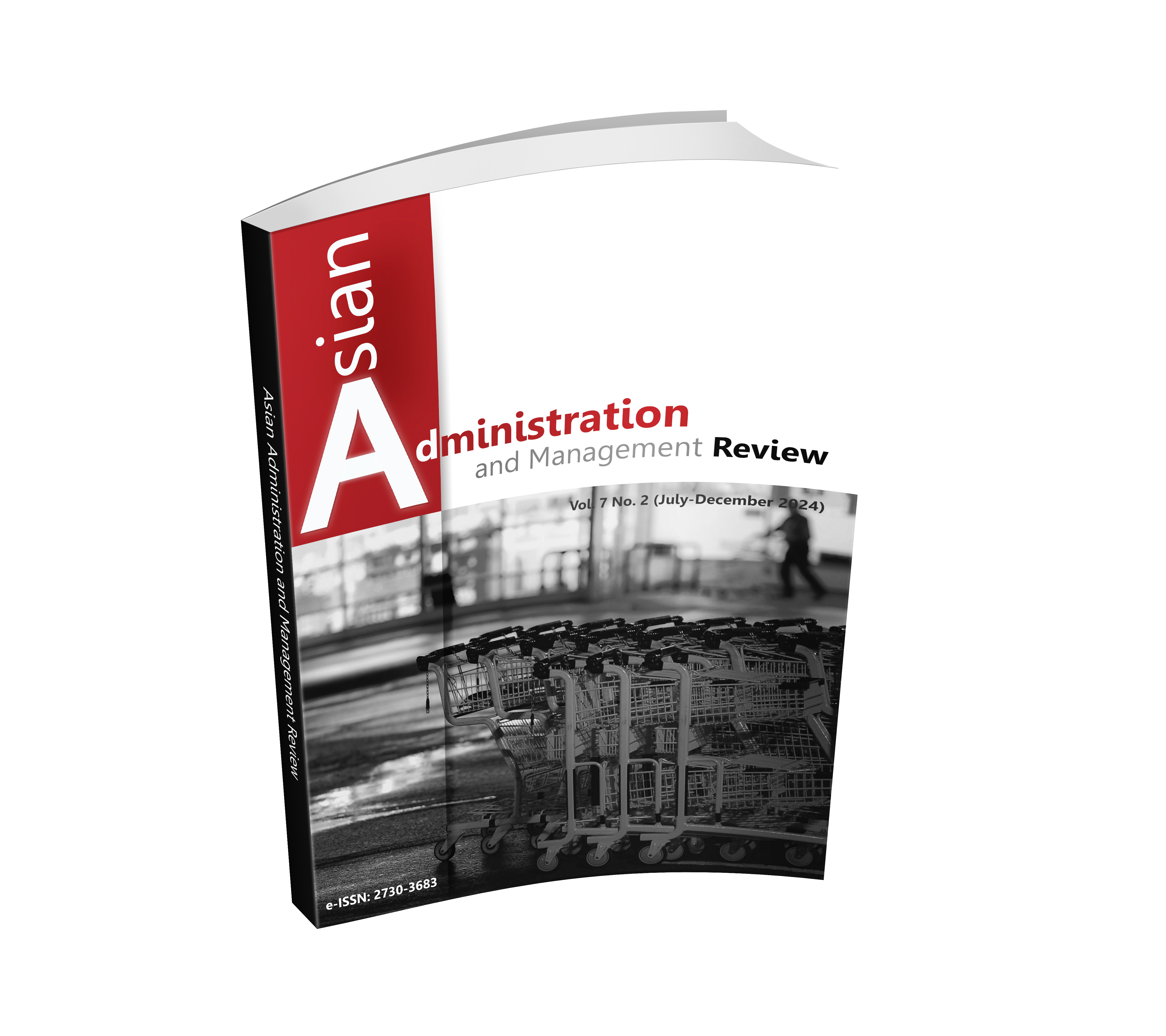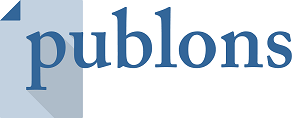THE MEDIATING ROLE OF PROFESSIONAL IDENTITY AND ORGANIZATIONAL IDENTITY IN SUSTAINABLE HRM AND UNIVERSITY TEACHER PERFORMANCE: AN EMPIRICAL STUDY IN CHINA
DOI:
https://doi.org/10.14456/aamr.2024.42Keywords:
Sustainable Human Resource Management, Professional Identity, Organizational Identity, Job Performance, University TeachersAbstract
This study explores the mediating effect of professional role perception and role value perception between sustainable human resource management (SHRM) and organizational identity under SHRM internalization, as well as the chain mediating effect of professional role perception, role value perception, and organizational identity between SHRM and job performance. It also examines the positive correlation between organizational identity and job performance. Based on self-determination theory, this study employs quantitative research methods to investigate 851 teachers from undergraduate public universities in China. The results showed that SHRM was significantly positively correlated with professional role perception and role value perception. Both professional role perception and role value perception were positively correlated with organizational identity. Organizational identity significantly improved job performance. The mediating effect included that SHRM had indirect effects on job performance through professional role perception, role value perception, and organizational identity. By implementing staff development and training, promoting academic exchange and cooperation, establishing a mentor system, formulating reward and incentive mechanisms, and clarifying sustainable development goals, university administrators can use the results of this study to effectively enhance teachers' professional role perception and role value perception, thereby promoting the improvement of organizational identity and job performance.
Downloads
References
Aboramadan, M., Kundi, Y., & Becker, A. (2022). Green human resource management in nonprofit organizations: effects on employee green behavior and the role of perceived green organizational support. Personnel Review, 51(7), 1788-1806.
Aguinis, H., & Glavas, A. (2012). What we know and don't know about corporate social responsibility: A review and research agenda. Journal of Management, 38(4), 932-968.
Amalia, M. (2024). The Impact of Digital Era 4.0 Transformation on Human Resources Management. Management Studies and Business Journal (PRODUCTIVITY), 1(1), 89-98.
Anlesinya, A., & Susomrith, P. (2020). Sustainable human resource management: a systematic review of a developing field. Journal of Global Responsibility, 11(3), 295-324.
Armstrong, M. (2011). Armstrong's handbook of strategic human resource management. 4th ed. London: Kogan Page Publishers.
Ashforth, B., & Mael, F. (1989). Social Identity Theory and the Organization. Academy of Management Review, 14(1), 20-39.
Beijaard, D., Verloop, N., & Vermunt, J. (2000). Teachers’ perceptions of professional identity: An exploratory study from a personal knowledge perspective. Teaching and Teacher Education, 16(7), 749-764.
Castro, M., de Araújo, M., Ribeiro, A., Demo, G., & Meneses, P. (2020). Implementation of strategic human resource management practices: a review of the national scientific production and new research paths. Revista de Gestão, 27(3), 229-246.
Chams, N., & García-Blandón, J. (2019). On the importance of sustainable human resource management for the adoption of sustainable development goals. Resources, Conservation and Recycling, 141, 109-122.
Chen, L., Chen, P., & Lin, Z. (2020). Artificial intelligence in education: A review. IEEE Access, 8, 75264-75278.
Christian, M., Garza, A., & Slaughter, J. (2011). Work engagement: A quantitative review and test of its relations with task and contextual performance. Personnel Psychology, 64(1), 89-136.
Conteh, S., & Yuan, Y. (2022). The impact of high performance work system on employee service performance: The role of organizational support and organizational identification. International Journal of Productivity and Performance Management, 71(7), 2841-2864.
Dong, L. (2022). A study on organizational identification of university teachers. Doctoral Thesis, South-Central University for Nationalities.
Ehnert, I. (2009). Sustainability and human resource management: reasoning and applications on corporate websites. European Journal of International Management, 3(4), 419-438.
Elias, A., Sanders, K., & Hu, J. (2023). The Sustainable Human Resource Practices and Employee Outcomes Link: An HR Process Lens. Sustainability, 15(13), 10124.
Erikson, E. (1968). Identity: youth and crisis. New York: Norton & Co.
Fei, X., & Wang, J. (2022). Sustainable Human Resource Management and Innovation. In H. Chan, M. Liu, J. Wang, & T. Zhang. (eds.). Responsible Innovation Management (pp. 187-208). Singapore: Springer.
Genari, D., & Macke, J. (2022). Sustainable human resource management practices and the impacts on organizational commitment. Revista de Administração de Empresas (Journal of Business Management), 62(5), 1-23.
Gómez, L., & Valdés, M. (2019). The Evaluation of Teacher Performance in Higher Education. Propósitos y Representaciones, 7(2), 479-515.
Guest, D. (1997). Human resource management and performance: a review and research agenda. International Journal of Human Resource Management, 8, 263-276.
Guo, J., Qiu, Y., & Gan, Y. (2022). Workplace incivility and work engagement: The chain mediating effects of perceived insider status, affective organizational commitment and organizational identification. Current Psychology: A Journal for Diverse Perspectives on Diverse Psychological Issues, 41(4), 1809-1820.
Huselid, M. (1995). The impact of human resource management practices on turnover, productivity, and corporate financial performance. Academy of Management Journal, 38, 635-672.
Innis, D., & La Londe, B. (1994). Customer service: the key to customer satisfaction, customer loyalty, and market share. Business Logistics, 15, 1-28.
Jeronimo, H., de Lacerda, T., & Henriques, P. (2020). From sustainable HRM to employee performance: A complex and intertwined road. European Management Review, 17(4), 871-884.
Johnson, M., Cowin, L., Wilson, I., & Young, H. (2012). Professional identity and nursing: contemporary theoretical developments and future research challenges. International Nursing Review, 59(4), 562-569.
Kanwal, S. (2018). Impact of performance management system on organisational performance of higher education institutions: A case study of Pakistan. Master of Philosophy, University of Salford.
Kess-Momoh, A., Tula, S., Bello, B., Omotoye, G., & Daraojimba, A. (2024). Strategic human resource management in the 21st century: A review of trends and innovations. World Journal of Advanced Research and Reviews, 21(01), 746-757.
Kramar, R. (2014). Beyond Strategic Human Resource Management: Is Sustainable Human Resource Management the Next Approach?. International Journal of Human Resource Management, 25, 1069-1089.
Kremer, L., & Hofman, J. (1981). Teachers' professional identity and burnout. Research in Education, 34, 89-93.
London, M. (1993). Relationships between Career Motivation, Empowerment and Support for Career Development. Journal of Occupational & Organizational Psychology, 66, 55-69.
Lu, Y., Zhang, M., Yang, M., & Wang, Y. (2023). Sustainable human resource management practices, employee resilience, and employee outcomes: Toward common good values. Human Resource Management, 62(3), 331-353.
Ma, X., Yu, Y., Zhang, J., & Zhang, P. (2021). A Review of Literature on the Concept of Professional Identity. A paper presented at the 3rd International Conference on Educational Reform, Management Science and Sociology, Hunan University, China.
Nunnally, J. (1975). Psychometric Theory— 25 Years Ago and Now. Educational Researcher, 4(10), 7-21.
Ostroff, C., & Bowen, D. (2016). Reflections on the 2014 decade award: is there strength in the construct of HR system strength?. Academy of Management Review, 41(2), 196-214.
Piwowar-Sulej, K., Malik, S., Shobande, O., Singh, S., & Dagar, V. (2024). A contribution to sustainable human resource development in the era of the COVID-19 pandemic. Journal of Business Ethics, 191(2), 337-355.
Riketta, M. (2005). Organizational Identification: A Meta-Analysis. Journal of Vocational Behavior, 66, 358-384.
Saha, N., Chatterjee, B., Gregar, A., & Sáha, P. (2016). The impact of SHRM on sustainable organizational learning and performance development. International Journal of Organizational Leadership, 5(1), 63-75.
Sarma, E., & Rao, M. (2020). Sustainable Human Resource Management: Making Human Resources More Responsible. In S. Vanka, M. Rao, S. Singh, & M. Pulaparthi. (eds.). Sustainable Human Resource Management (pp. 37-55). Singapore: Springer.
Shen, Z. (2023). Research on factors influencing university teachers' job performance: An empirical analysis based on structural equation modeling. Higher Science Education, (03), 1-12.
Sypniewska, B., Baran, M., & Kłos, M. (2023). Work engagement and employee satisfaction in the practice of sustainable human resource management - based on the study of Polish employees. International Entrepreneurship and Management Journal, 19, 1069-1100.
Tajfel, H. (1978). Intergroup Behavior. In C. Tajfel, & H. Fraser. (eds.). Introducing Social Psychology (pp. 401-466). New York: Penguin Books.
Touati, N., Rodríguez, C., Paquette, M., Maillet, L., & Denis, J. (2019). Professional role identity: at the heart of medical collaboration across organisational boundaries. International Journal of Integrated Care, 19(2), 1.
Walker, T. (2014). The teacher evaluation: Key components that positively impact teacher effectiveness and student achievement. Doctor of Education Thesis, University of Southern California.
Wei, S., Song, G., & Zhang, D. (2013). The structure and scale of professional identity of primary and secondary school teachers in China. Research in Teacher Education, 25(01), 55-60.
Weisberg, H., Krosnick, J., & Bowen, B. (1989). An introduction to survey research and data analysis. 2nd ed. Illinois: Scott, Foresman & Co.
Wojtczuk‐Turek, A., Turek, D., Edgar, F., Klein, H., Bosak, J., Okay‐Somerville, B., et al. (2024). Sustainable human resource management and job satisfaction—Unlocking the power of organizational identification: A cross-cultural perspective from 54 countries. Corporate Social Responsibility and Environmental Management, 31(5), 4910-4932.
Xiao, J. (2019). A study on the professional identity of young teachers at Z Academy. Doctoral Thesis, Henan University of Economics and Law.
Zhang, W. (2020a). Challenges and institutional reform paths for young university teachers in the context of the appointment system—A new institutionalism perspective. Higher Education Management, 14(04), 52-60.
Zhang, Y. (2020b). Research on the identity of new teachers in ordinary local colleges and universities and its influencing factors—Analysis from the two-dimensional perspective of organizational identity and professional identity. Educational Development Research, 40(19), 77-84.

Downloads
Published
How to Cite
Issue
Section
License
Copyright (c) 2024 Authors

This work is licensed under a Creative Commons Attribution-NonCommercial-NoDerivatives 4.0 International License.











.png)


